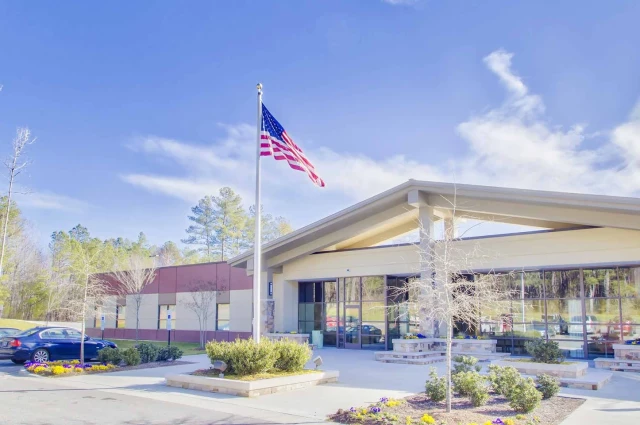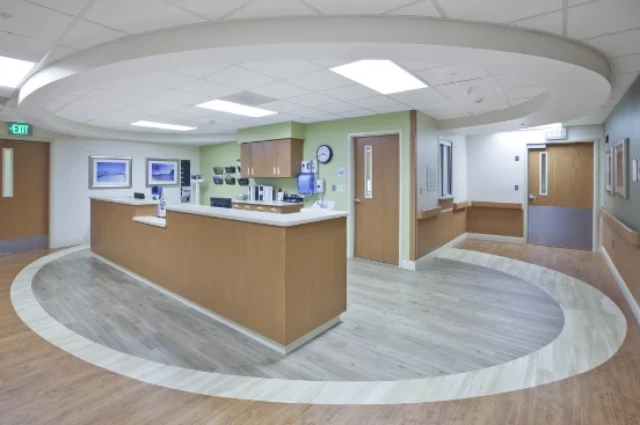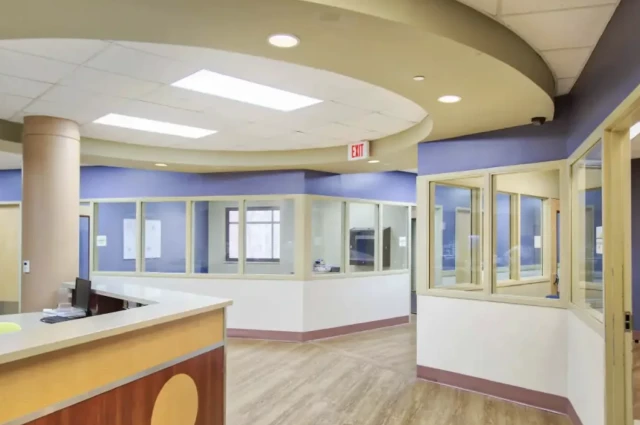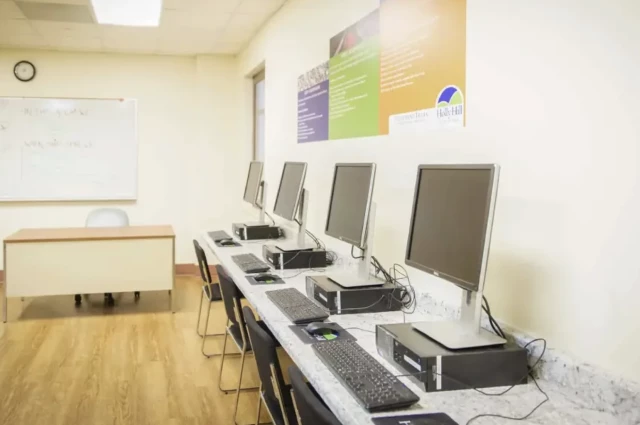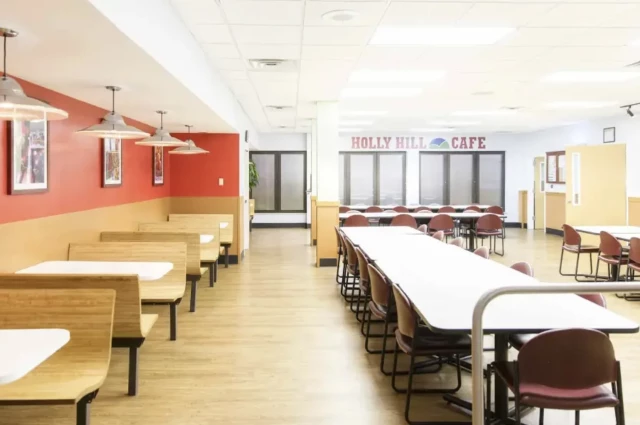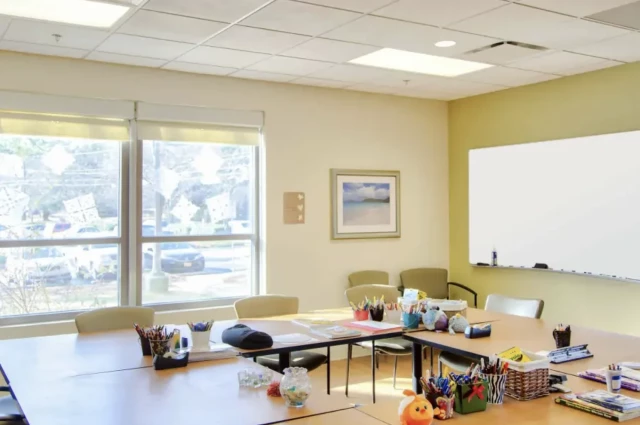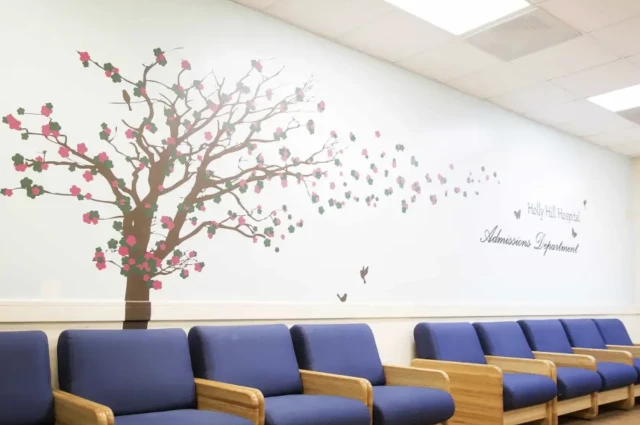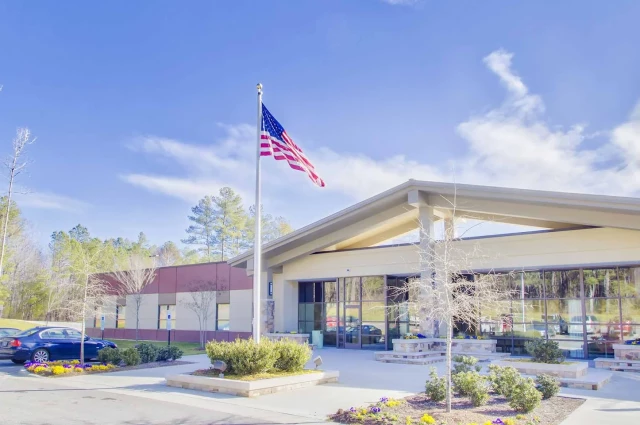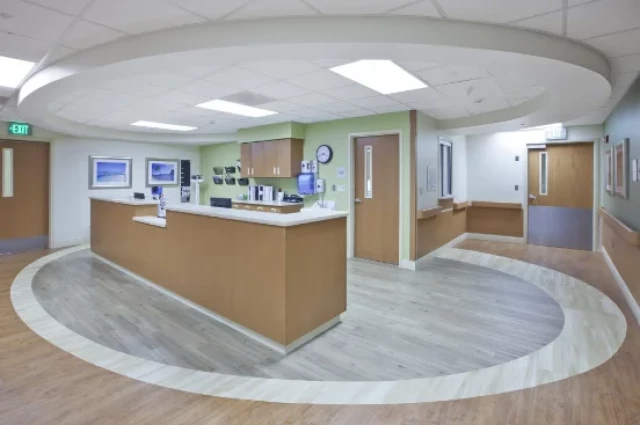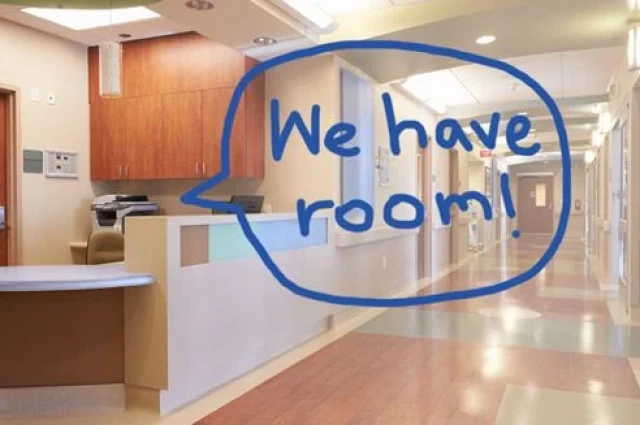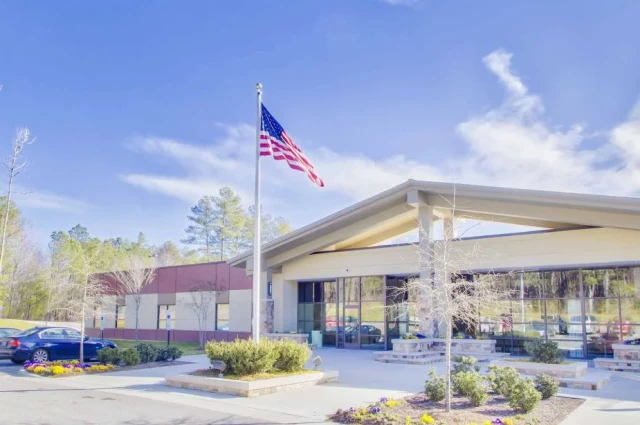Located in Raleigh, North Carolina, Holly Hill Hospital is a premier healthcare facility specializing in comprehensive mental health and substance use disorder treatment, including care for co-occurring disorders.
Holly Hill Hospital services span all age groups, catering to children, teenagers, young adults, adults, and seniors, inpatient, outpatient, and telehealth services are available to accommodate diverse patient needs and preferences.
For children aged 5 to 11, the specialized inpatient program provides compassionate care for various mental health conditions. Adolescents, aged 12 to 17, benefit from a structured inpatient environment offering evidence-based treatments such as Cognitive Behavioral Therapy (CBT) and Dialectical Behavior Therapy (DBT).
Holly Hill Hospital extends its care continuum with a Partial Hospitalization Program (PHP) and an Intensive Outpatient Program (IOP). PHP offers therapeutic modalities from 9am to 2pm, providing intensive support while allowing patients to return home in the evenings. The IOP meets three days a week, from 9am to 12pm, offering structured therapy sessions that accommodate patients' daily schedules.
Recognizing the importance of accessibility and convenience, Holly Hill Hospital also offers telehealth services. Patients can securely connect with healthcare professionals via video conferencing, ensuring confidential consultations from the comfort of their homes.
Accredited by The Joint Commission, Holly Hill Hospital maintains rigorous standards of care and safety, affirming our commitment to delivering high-quality treatment outcomes and patient satisfaction.
Holly Hill Hospital is dedicated to promoting healing, recovery, and improved quality of life for all individuals we serve, supported by a multidisciplinary team of professionals committed to excellence in mental health and substance use disorder treatment.
